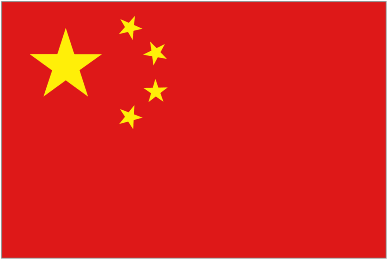by Jeremy D. Morley
https://www.international-divorce.com/notes-on-laws-and-practices-of-china-3
In China, marital property is theoretically required to be divided equally between the spouses upon a divorce. But without an enforceable obligation to make full disclosure of assets, there has inevitably been a yawning gap between theory and practice. Until recently, no such obligation to disclose assets existed in China.
The Law of the People’s Republic of China on the Protection of Women’s Rights and Interests, as amended in 2022 with effect from January 1, 2023, now provides that during divorce proceedings both parties have an obligation to declare all of their joint property. The statute provides further that a party who conceals, transfer, sells, destroys, or squanders any such property may receive a reduced share of the marital property upon a divorce or even no such share.

Effective on January 1, 2023, the Hengyang County People’s Court issued specific rules ordering divorcing spouses to truthfully declare their marital assets. Courts in other provincial governments have since followed suit. How effective these requirements will be remains to be seen.
These developments are especially significant in light of the fact that “joint” or “common” or “community” property has a very broad definition in Chinese law and that the governing statute requires an equal division between the spouses, regardless of considerations of fairness or respective contributions. The Civil Code provides that it includes salaries, wages, bonuses, and other remuneration for services rendered; proceeds from production, business operations, and investment; proceeds of intellectual property rights; inherited assets and gifts; and properties in joint names. The Code then provides that the following classes of property are excluded from being common assets: a spouse’s premarital assets, personal injury awards, property given in a will or “gift contract”. and daily life articles used by one spouse, and “other property that shall be owned by one spouse.”
These new laws and court rules may explain why there has been a reportedly been a significant uptick in high-net-worth divorce settlements in China, especially affecting stockholders in major listed companies.
It also means that there is now likely to be a significant increase in prenuptial and postnuptial agreements entered into by Chinese and Chinese-connected parties. It appears that such agreements are now needed more than ever. However, for international clients they should be crafted by counsel with significant experience in developing international prenuptial agreements for various international jurisdictions.

Country-by-Country Information About Child Abduction and Divorce
(Click to find your country)
IMPORTANT: WE REQUIRE SPECIFIC INFORMATION ABOUT YOUR SITUATION OR WE WILL NOT BE ABLE TO RESPOND.
POTENTIAL CLIENTS SHOULD NOT SEND ANY CONFIDENTIAL INFORMATION UNTIL SUCH TIME AS AN ATTORNEY-CLIENT RELATIONSHIP HAS BEEN ESTABLISHED BY A WRITTEN RETAINER AGREEMENT SIGNED BY BOTH THE ATTORNEY AND THE CLIENT. SENDING AN EMAIL DOES NOT CREATE AN ATTORNEY-CLIENT RELATIONSHIP OR CONTRACTUALLY OBLIGATE THE LAW OFFICE OF JEREMY D. MORLEY TO REPRESENT YOU, REGARDLESS OF THE CONTENT OF SUCH INQUIRY.
Potential clients should not send any confidential information until such time as an attorney-client relationship has been established by a written retainer agreement signed by both the attorney and the client. Sending an email does not create an attorney-client relationship or contractually obligate The Law Office of Jeremy D. Morley to represent you, regardless of the content of such inquiry.
Copyright © 2025 Jeremy Morley | Website Designed by MozWebMedia